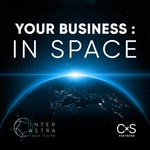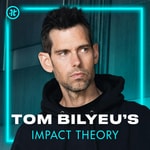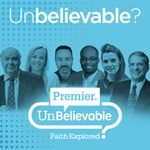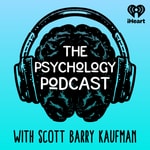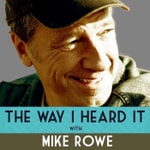The Rational View podcast with Dr. Al Scott – Détails, épisodes et analyse
Détails du podcast
Informations techniques et générales issues du flux RSS du podcast.
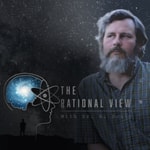
The Rational View podcast with Dr. Al Scott
Al Scott
Fréquence : 1 épisode/8j. Total Éps: 200

Classements récents
Dernières positions dans les classements Apple Podcasts et Spotify.
Apple Podcasts
🇨🇦 Canada - documentary
12/11/2024#85🇫🇷 France - documentary
07/09/2024#75
Spotify
Aucun classement récent disponible
Liens partagés entre épisodes et podcasts
Liens présents dans les descriptions d'épisodes et autres podcasts les utilisant également.
See all- https://therationalview.podbean.com
79 partages
- http://www.therationalview.ca
32 partages
- https://therationalview.podbean.com/
28 partages
- https://facebook.com/groups/therationalview
52 partages
- https://facebook.com/AlScottRational
37 partages
Qualité et score du flux RSS
Évaluation technique de la qualité et de la structure du flux RSS.
See allScore global : 47%
Historique des publications
Répartition mensuelle des publications d'épisodes au fil des années.
Dr. Michael Walker on the evolution of mind
Épisode 209
dimanche 1 septembre 2024 • Durée 33:22
In this episode I’m continuing to look at consciousness and cognition and the working memory that sets humans apart from all other animals. Human working memory can be roughly quantified to hold about 7 items at once in a sequence and allow conscious manipulation, consideration, and attention to about 4 of them at a time. These numbers are surprisingly consistent across all humans. The size of working memory in humans is much larger than in our nearest relatives the great apes. The ability to remember sequence information also seems to be unique.
Today I’m interviewing a researcher who studies the evolution of the human capacity for cognition. His vocabulary and working memory are both immense. I need to stretch my working memory to the limit just to parse some of his most elegant utterances. For example, in a recent exchange he opined the following gem: “However, as Karl Friston reminded us, the mathematical itinerancy of stochastic genetical and epigenetical mechanisms in ergodic systems can explain the appearances, disappearances, and reappearances of some technological outcomes of Early Pleistocene human behaviours from a far more rational scientific basis than can any self-justifying assertion that ‘absence of evidence is not evidence of absence’.”
Professor emeritus Michael Walker is a paleoanthropologist with degrees in Medicine, Physiology, and Prehistoric Archaeology from Oxford University including his doctorate on the prehistoric physical anthropology and archaeology of the southeastern Spanish region of Murcia. He established systematic two important Palaeolithic excavation sites, one with fossil remains of fourteen Neanderthals in deep sediments with dates from 130,000 to 40,000 years ago, and a very much older site dating to between 900,000 and 772,000 years ago where he discovered burning in the cave, as well as abundant stone artefcts among which is the earliest stone hand-axe from Europe. The unique hand-axe reawakened Dr. Walker’s interest in neuroscience and, in particular, about how cognition might lead to surprising manual behaviour that was not passed on culturally. This hypothesis, based on the Free Energy Principle, has implications on the evolution of human cognition and calls into question time-honoured interpretations by anthropologists about human cultural transmission.
Add your two cents on Facebook @TheRationalView
If you like me to keep doing this send more than two cents to patron.podbean.com/TheRationalView
Dr. Hector Manrique says a good working memory is uniquely human
Épisode 208
dimanche 25 août 2024 • Durée 52:50
In this episode I’m going back to look at consciousness and cognition, and specifically one aspect of our mental capacity that sets us apart from other animals. It’s our ability to recall items in a sequence, for those of you who are software buffs, basically we have a short term memory buffer that acts like a linked list. We can remember a list of numbers (about 7 or so), or letters, or items in a particular order over a short timespan if we are not too distracted. This capability is called working memory.
Working memory can be roughly quantified to hold about 7 items at once in a sequence and allow conscious manipulation, consideration, and attention to about 4 of them at a time. These numbers are surprisingly consistent across all humans.
The size of working memory in humans is much larger than in our nearest relatives the great apes. The ability to remember sequence information also seems to be unique.
Some scientists speculate that the evolution of working memory is what separates humans intellectually from other intelligent animals. Working memory capacity is strongly correlated with fluid intelligence.
Héctor Manrique: graduated in Psychology in 1999, then he started his scientific career by studying ethanol metabolism in the brain and its effect on memory in rodents and got his PhD in Psychobiology in 2005. Hmm sounds a lot like my graduate work inadvertently studying the effects of alcohol on my brain. In 2008 he joined The Department of Developmental and Comparative Psychology at the Max Planck Institute for Evolutionary Anthropology (Leipzig, Germany) where he investigated the cognition of the four species of great apes. After having occupied different positions in several Spanish universities he currently holds a professorship in Developmental Psychology at Universidad de Zaragoza, Spain.
Support The Rational View at patron.podbean.com/TheRationalView
Throw in your 2 cents on Facebook @TheRationalView
Al and Kevin address manifestation LIVE
Épisode 199
samedi 15 juin 2024 • Durée 46:40
This episode is a recording of a live social media broadcast on Facebook, LinkedIn, YouTube and Riverside.fm where the Scott brothers revisit their previous disagreements over manifestation and magical thinking. Will they come to an agreement or will it come to fisticuffs? Manifestation is the idea that by aligning our thoughts and expectations with our goals we can better achieve success. Many people take this idea to a magical extreme whereby the proper series of mental gymnastics will change one's circumstances independent of other actions.
Kevin Scott is the founder of the Effortless Alpha brotherhood "To inspire, and create space for men to access their own potential through the bond of brotherhood where no man feels alone". His life-transforming work with men has sparked the Masculine Expansion, creating space for men to lead themselves and become a role model in their communities with power, honour, discipline and respect.
Please help to support the podcast at patron.podbean.com/TheRationalView
Give me your feedback on Facebook @TheRationalView
Dr. Bernardo Kastrup on the Universal Mind
Épisode 109
samedi 9 juillet 2022 • Durée 01:09:34
In this episode I return to my investigation of the physical and philosophical bases of consciousness. Today I will be taking on a new perspective from a leading expert in both philosophy and artificial intelligence.
Bernardo Kastrup is the executive director of Essentia Foundation. His work has been leading the modern renaissance of metaphysical idealism, the notion that reality is essentially mental. He has a Ph.D. in philosophy and another Ph.D. in computer engineering specializing in artificial intelligence. As a scientist, Bernardo has worked for the European Organization for Nuclear Research (CERN) and the Philips Research Laboratories.
Find The Rational View on YouTube!
Join the Facebook Discussion @TheRationalView
Twitter @AlScottRational
Instagram @The_Rational_View
#TheRationalView #Podcast #mind #panpsychism #consciousness #idealism #solipsism #metaphysics
Dr. Gerfried Jungmeier discusses electric vehicles
Épisode 108
samedi 2 juillet 2022 • Durée 43:08
In this episode I am returning to one of my favourite topics—the clean energy transition. Today I wanted to explore the life cycle greenhouse gas footprint of the shift to electric vehicles. Many governments are using a transition to electrified transportation as the foundation of their GHG emissions reduction programs. Today I’m going to an expert to find out how effective this transition will be on our society’s GHG emissions profile.
Dr. Gerfried Jungmeier holds a Master’s degree in mechanical engineering and received a PhD studying the Greenhouse Gas Balance of Bioenergy Systems. He is an future energy systems researcher at Joanneum Research Forschungsgesellschaft mbH. He lectures at Vienna University of Technology, Danube University Krems, and University of Applied Science Kapfenberg. He is an expert in the life cycle assessment of energy and mobility systems.
My podcast is hosted at https://therationalview.podbean.com
Join the Facebook discussion @TheRationalView
Twitter @AlScottRational
Instagram @The_Rational_View
#therationalview #podcast #electricvehicles #energytransition #netzero
Communicating science through fiction with Eric Choi
Épisode 107
samedi 25 juin 2022 • Durée 40:08
On my episode today I will be exploring a fun topic—science fiction, with a friend an colleague who is also an up and coming science fiction author. We will discuss themes of communicating science and our shared love of science fiction.
Eric Choi is a writer, editor, and aerospace engineer in Toronto. He has twice won the Prix Aurora Award – Canada’s national prize for excellence in science fiction and fantasy – for his short story “Crimson Sky” and for the anthology The Dragon and the Stars, and he was the first recipient of the Isaac Asimov Award (now the Dell Magazines Award) for his novelette “Dedication”. His short fiction has appeared in more than two dozen publications in Canada, the United States, the United Kingdom, Hungary, and Japan. He holds a B.A.Sc in engineering science and an M.A.Sc in aerospace engineering, both from the University of Toronto, and an MBA from York University. In 2009, he was one of the Top 40 finalists (out of 5,351 applicants) in the Canadian Space Agency’s astronaut recruitment campaign.
Podcast transcripts at www.therationalview.ca
Join the Facebook discussion @TheRationalView
Twitter @AlScottRational
Instagram @The_Rational_View
#TheRationalView #podcast #science #sciencefiction #communication
Dr. Scott Aaronson on sentience, AI and quantum computing
Épisode 106
samedi 18 juin 2022 • Durée 01:01:06
In this episode I am continuing my investigation into the so-called hard problem of consciousness. I’ve spoken to several people who believe that consciousness arose in single celled organisms and is somehow integrated at higher levels through electrical synchronization or intercellular molecular transport into a unified experience. Hindus and Buddhists believe that there is a Universal consciousness of which we all partake. This is similar in some ways to Sir Roger Penrose’ theory of consciousness called Orchestrated Objective Reduction, where microtubule organelles in the brain’s neurons have evolved to concentrate the diffuse universal consciousness present in the collapse of quantum superpositions. Some of these folks believe that the randomness at the heart of quantum mechanics is necessary for free will and volition. Others like Bertrand Russel believe that we act in accordance with our will even if our actions have past causes and the future is pre-determined. Today I’m honoured to be interviewing an expert who pushes the limits of human knowledge in terms of our understanding of the implications of quantum computing in regards to artificial intelligence.
Scott Aaronson is David J. Bruton Centennial Professor of Computer Science at the University of Texas at Austin, and previously at MIT. He received his bachelor's from Cornell University and his PhD from UC Berkeley. Aaronson's research in theoretical computer science has focused mainly on the capabilities and limits of quantum computers. His first book, Quantum Computing Since Democritus, was published in 2013 by Cambridge University Press. He's received the National Science Foundation’s Alan T. Waterman Award, the United States PECASE Award, the Tomassoni-Chisesi Prize in Physics, and the ACM Prize in Computing, and is a Fellow of the ACM.
I'm publishing transcripts of some podcasts at www.therationalview.ca
Join the Facebook discussion @TheRationalView
Twitter @AlScottRational
Instagram @The_Rational_View
#TheRationalView #podcast #consciousness #sentience #artificialintelligence #quantum computing
Dr. Michael Levin on cellular cooperation and cognition
Épisode 105
samedi 11 juin 2022 • Durée 01:09:46
In this episode I continue my exploration into the nature of consciousness and awareness. I’ve learned a lot in my exploration to date. I’ve learned about Hindu and Buddhist ideas on awareness, and I’ve delved into the underlying quantum mechanical nature of reality. I’ve discussed ideas of quantum computing and biological links to the mysteries of quantum mechanics. My guest today is an expert on the cellular basis of memory and cognition.
Michael Levin received dual B.S. degrees (computer science and biology), followed by a Ph.D. (Harvard University). After post-doc training (Harvard Medical School), he started his independent lab at Forsyth Institute focusing on the biophysics of cell:cell communication during embryogenesis, regeneration, and cancer. In 2009 he moved his group to Tufts, where they use biophysical and computational approaches to study decision-making and basal cognition in cells, tissues, and synthetic living machines. Levin holds the Vannevar Bush chair, and directs the Allen Discovery Center at Tufts, working to crack the morphogenetic code for applications in regenerative medicine, bioengineering, and artificial intelligence. Recent work includes the modulation of native bioelectric circuits to control embryogenesis, regeneration, and cancer, and the creation of novel synthetic living proto-organisms.
Visit www.therationalview.ca for transcriptions
Join the Facebook discussion @TheRationalView
Twitter @AlScottRational
Instagram @The_Rational_View
#therationalview #podcast #cognition #memory #science #consciousness #emergence #cells
A Buddhist perspective on awareness with Dr. John Dunne
Épisode 104
samedi 4 juin 2022 • Durée 01:01:21
In this episode I continue my exploration of consciousness, exploring a field of enquiry that has focused almost exclusively on consciousness and awareness for hundreds of years. Although it is not science, Buddhism has a uniquely close relation with physics and physicists being oft quoted. 'The Tao of Physics' comes to mind, as well as ‘The Dancing Wu Li Masters’ as examples. I hope you enjoy this foray into the Buddhist mind.
Dr. John Dunne serves on the faculty of the University of Wisconsin-Madison, where he holds the Distinguished Chair in Contemplative Humanities at the Center for Healthy Minds. He is also distinguished professor in the Department of Asian Languages & Cultures, where he currently serves as department Chair.
Dr. Dunne's work focuses on Buddhist philosophy and contemplative practice, especially in dialog with Cognitive Science and Psychology. His publications appear in venues ranging across both the Humanities and the Sciences, and they include works on Buddhist philosophy, contemplative practices and their empirical examination and interpretation within scientific contexts.
John Dunne speaks in both academic and public contexts, and he occasionally teaches for Buddhist communities, including the Gomde centers of Denmark and Austria and Upaya Zen Center in Santa Fe. In addition to serving as core faculty for the Center for Healthy Minds, he is a Fellow of the Mind and Life Institute, where he has previously served on the Board of Directors, and he is an academic advisor to the Rangjung Yeshe Institute in Kathmandu, Nepal.
Check out transcripts at www.therationalview.ca
Join the Facebook discussion @TheRationalView
Twitter @AlScottRational
Instagram @The_Rational_View
#TheRationalView #podcast #buddhism #consciousness #awareness
Lemmel and Hofmann experiment with reality
Épisode 103
samedi 28 mai 2022 • Durée 01:01:51
Quantum Mechanics is a strange theory. Richard Feynman said “I think it is safe to say nobody understands quantum mechanics”. So why is it so popular if nobody understands it? How is this the basis for all of our physical knowledge of particles and their interactions?
A recent innovative experiment fires neutrons through a double slit and proves that each neutron goes through both slits at the same time.
Prof. Holger Hofmann, studied physics in his hometown of Stuttgart, Germany, then went to Tokyo University for a post-doctoral fellowship in 1999. Now at Hiroshima University, his research is focused on the way quantum theory describes observable phenomena. He believes that the key to a proper understanding of quantum mechanics can be found by exploring the practical means that we need to employ to achieve optimal control over a physical system.
Dr. Hartmut Lemmel studied physics in his hometown Vienna and graduated at the Vienna University of Technology in the group of Helmut Rauch who is the "father" of neutron interferometry. After his PhD in 2007 he stayed in the group and was posted to the Institut Laue-Langevin (ILL) in Grenoble as instrument responsible for the neutron interferometry setup.
Visit my website at https://www.therationalview.ca
Join the facebook discussion @TheRationalView
Instagram @The_Rational_View
Twitter @AlScottRational
#TheRationalView #podcast #quantummechanics #doubleslit #reality #pilotwave #manyworlds
